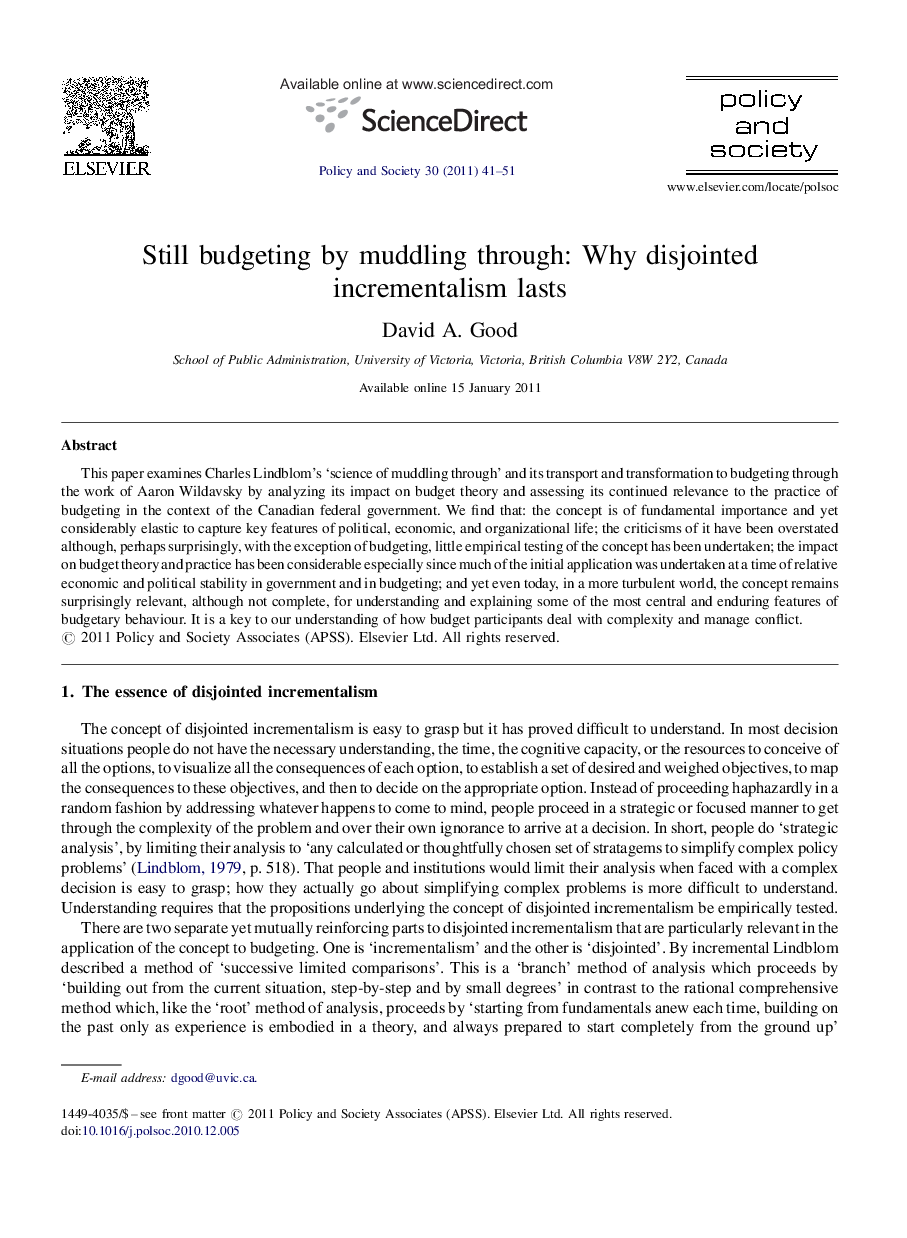| Article ID | Journal | Published Year | Pages | File Type |
|---|---|---|---|---|
| 1061544 | Policy and Society | 2011 | 11 Pages |
This paper examines Charles Lindblom's ‘science of muddling through’ and its transport and transformation to budgeting through the work of Aaron Wildavsky by analyzing its impact on budget theory and assessing its continued relevance to the practice of budgeting in the context of the Canadian federal government. We find that: the concept is of fundamental importance and yet considerably elastic to capture key features of political, economic, and organizational life; the criticisms of it have been overstated although, perhaps surprisingly, with the exception of budgeting, little empirical testing of the concept has been undertaken; the impact on budget theory and practice has been considerable especially since much of the initial application was undertaken at a time of relative economic and political stability in government and in budgeting; and yet even today, in a more turbulent world, the concept remains surprisingly relevant, although not complete, for understanding and explaining some of the most central and enduring features of budgetary behaviour. It is a key to our understanding of how budget participants deal with complexity and manage conflict.
